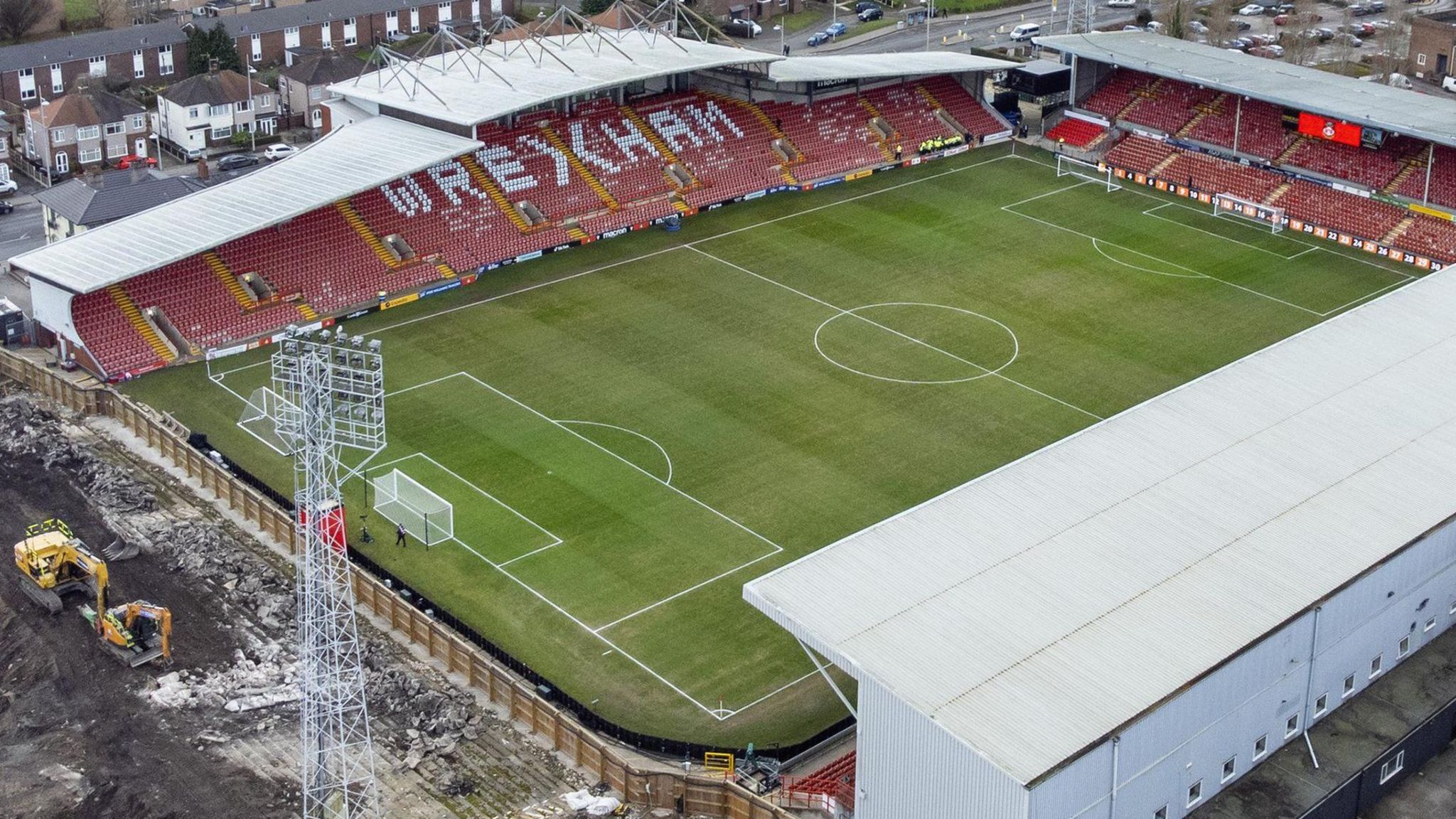Wrexham owners aim for 55,000-capacity Racecourse

Wrexham played their first game at Stok Racecourse in 1864, but only became its owners in 2022
- Published
Wrexham owners Ryan Reynolds and Rob McElhenney say their long-term ambition is to increase the club’s stadium capacity to as much as 55,000.
A new 5,500 all-seater stand is already planned at the Racecourse Ground as a replacement for the Kop end, which has been unused since 2007.
But after delays to the start of work, a temporary 2,289 stand has been erected instead.
Wrexham’s Hollywood co-owners are currently publicising season three of the 'Welcome to Wrexham' documentary - charting the club’s promotion from League Two - and have outlined their future plans for Stok Racecourse.
“We have a plan in place right now that would eventually work from stand to stand, so eventually you get all four sides,” McElhenney told American entertainment website Collider.
“It's hard to say for sure, but we think we could get between 45-55,000 people in there”.
With tickets for matches in high demand, Reynolds said he wants to be in a situation where “the whole town could come to the game”.
- Published9 February
It had been hoped the new Kop stand would be ready for the start of the 2024-25 season, but Reynolds and McElhenney have been frustrated by delays to the project.
“I think the thick buttress of bureaucracy is the biggest problem,” said Reynolds.
“I live in New York, Rob lives in LA [Los Angeles], where construction is very different, in as much as they will charge you $10 for every $1 you spend.
“But in Wales, it really is a lot of red tape, and it's just sort of figuring out ways to tick all those boxes and make sure that every single bureaucrat is happy."
McElhenney agrees, adding: “It is definitely a comedic point of consternation in the show how often we're running up against bureaucracy.
“And, of course, safety concerns and things like that, and all those regulations are there in place for a reason, but then there are some things that just seem like hurdles for hurdles' sake.
“It's a lot harder to build in the UK than, I found, almost anywhere else in the world.”